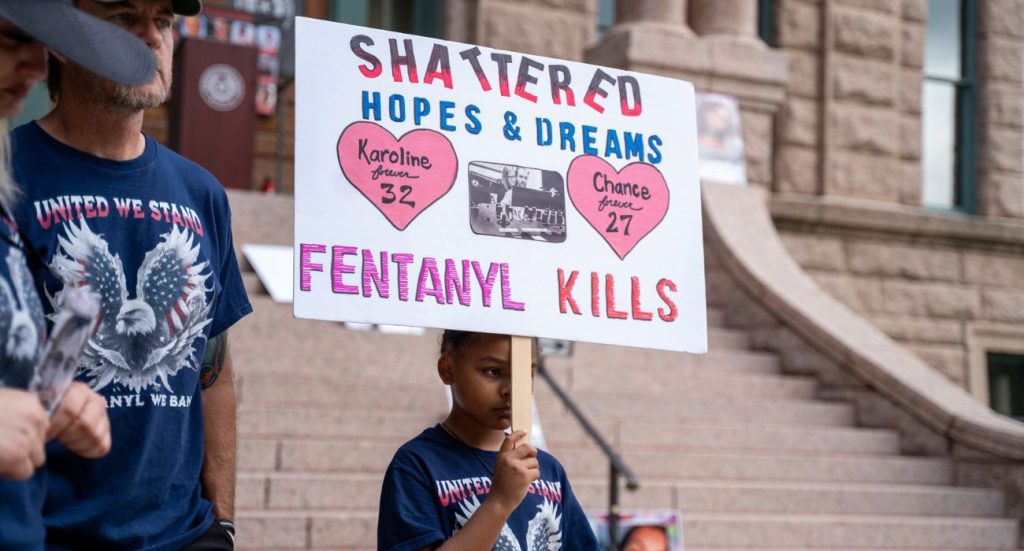FORT WORTH — People in the community came together on Friday to raise awareness about the fentanyl crisis because the number of overdoses is increasing in the metroplex.
The event on May 3 drew attention to the significant rise in fatal fentanyl doses and featured impactful stories from those who have lost loved ones to overdoses. It was organized by Stephanie Hellstern, a mother from Fort Worth who tragically lost her 16-year-old son to fentanyl in 2020, as previously reported by The Dallas Express. The Dallas Express highlighted how Hellstern started the North Texas Coalition Against Fentanyl in 2021, a non-profit organization aimed at supporting families grieving the loss of a loved one to fentanyl..
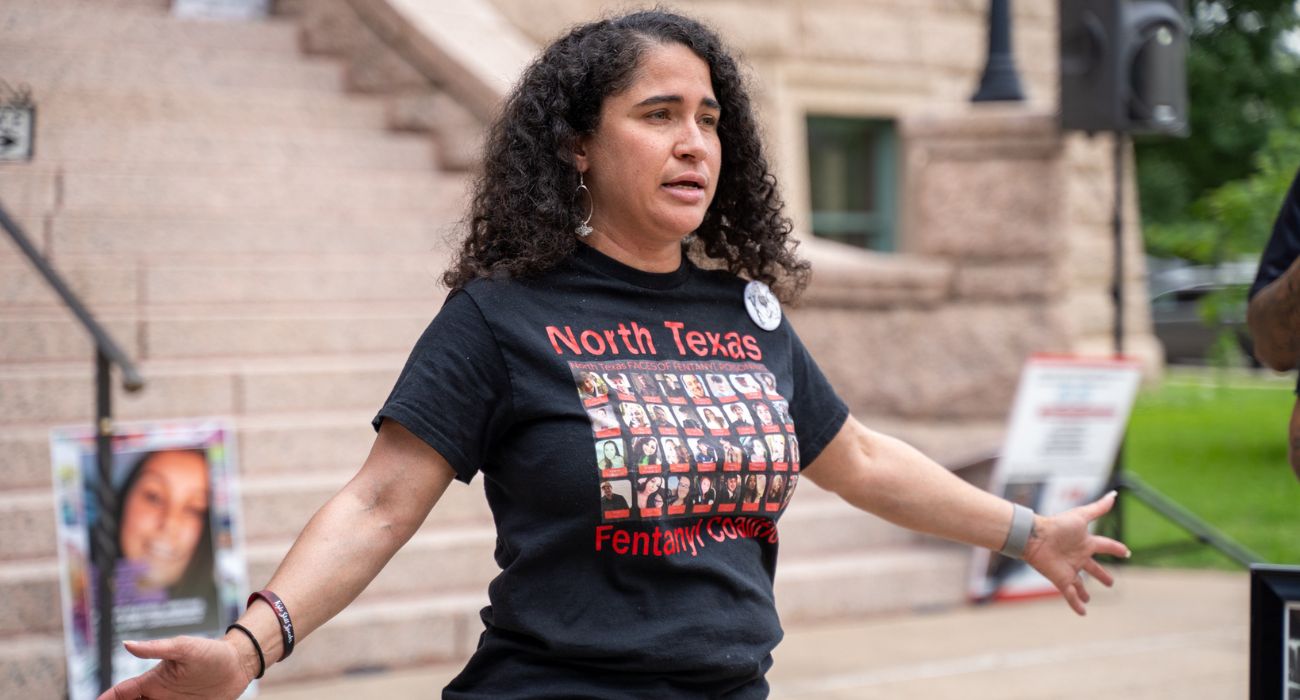
Last year, Hellstern initiated the North Texas Coalition Against Fentanyl, a non-profit group that aims to help families dealing with the loss of a loved one due to fentanyl.
The event, attended by members of the community, featured several speakers, including Hellstern, who discussed the need for change regarding the lethal drug. DX, featured several speakers, including Hellstern, who discussed the need for change surrounding the deadly drug.
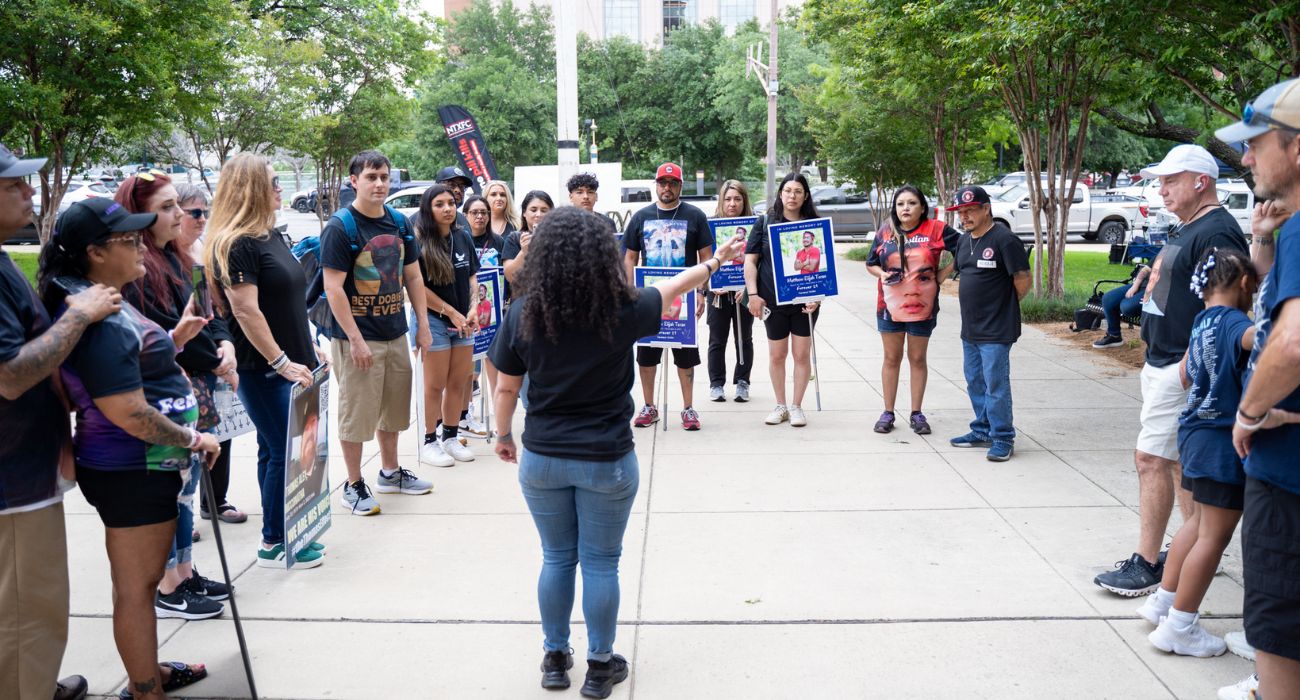
“Fentanyl is a silent killer,” Hellstern said. “We need to come together and realize that this is happening in our own schools, our own neighborhoods. … I want to get my city on board.”
The event started with Hellstern reading out the 83 names of those who have lost their lives this year in Texas due to fentanyl poisoning. These deaths involved victims ranging from age 2 to 44.
Zach Abrego shared his story of overdosing on fentanyl twice and being rescued by his fiancée. Abrego wants to see fentanyl test strips legalized in the state.
In the past year, members of the Dallas City Council urged U.S. Sen. Ted Cruz to support a bill that would decriminalize fentanyl testing strips across the nation, as reported by The Dallas Express. The bill failed in the Texas Senate because, as Sen. John Whitmire (D-Houston) put it, opponents believe legalizing the strips would give people more confidence to abuse the drugs..
The bill was rejected in the Texas Senate because some argued that allowing the strips would lead to increased drug abuse.
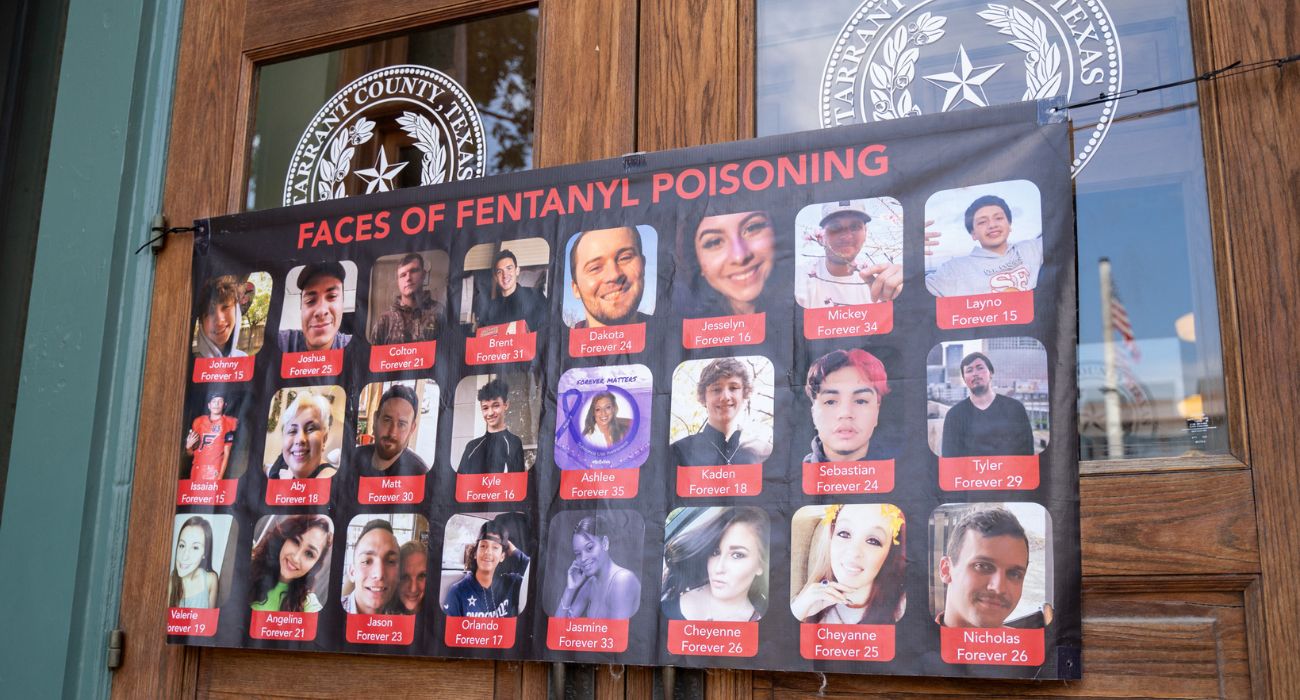
Abrego, in response to these arguments, declared: “Fentanyl test strips are not dangerous, but what is dangerous is not allowing people to use [them]. We have to do something about it and have to keep coming together.”
Ruben Pena, who lost his granddaughter Angelina to fentanyl, also spoke at the May 3 event. He shared that his grandaughter’s autopsy report labeled her death as an overdose and argued that was incorrect.
Pena emphasized, “It’s not an overdose. She was actually poisoned. She had a good life ahead of her. It is really tough to live every day hoping that it does not happen to anybody else.”
Gov. Greg Abbott signed Texas House Bill 6 into law last summer, requiring that the medical certification on a death certificate must include the term “fentanyl poisoning” or “fentanyl toxicity” if a lethal amount of the drug is found in the toxicology examination and the autopsy is consistent with an opioid overdose. The new law also made fentanyl-related offenses felonies and increased the associated penalties., signed Gov. Greg Abbott signed Texas House Bill 6 into law last summer, mandating that the medical certification on a death certificate must include the term “fentanyl poisoning” or “fentanyl toxicity” if a lethal amount of the drug is found in the toxicology examination and the autopsy is consistent with an opioid overdose. The legislation also elevated fentanyl-related offenses to felonies and increased the associated penalties.
Amanda Conover, an attendee of the event, spoke on behalf of her brother, who died from drug use.
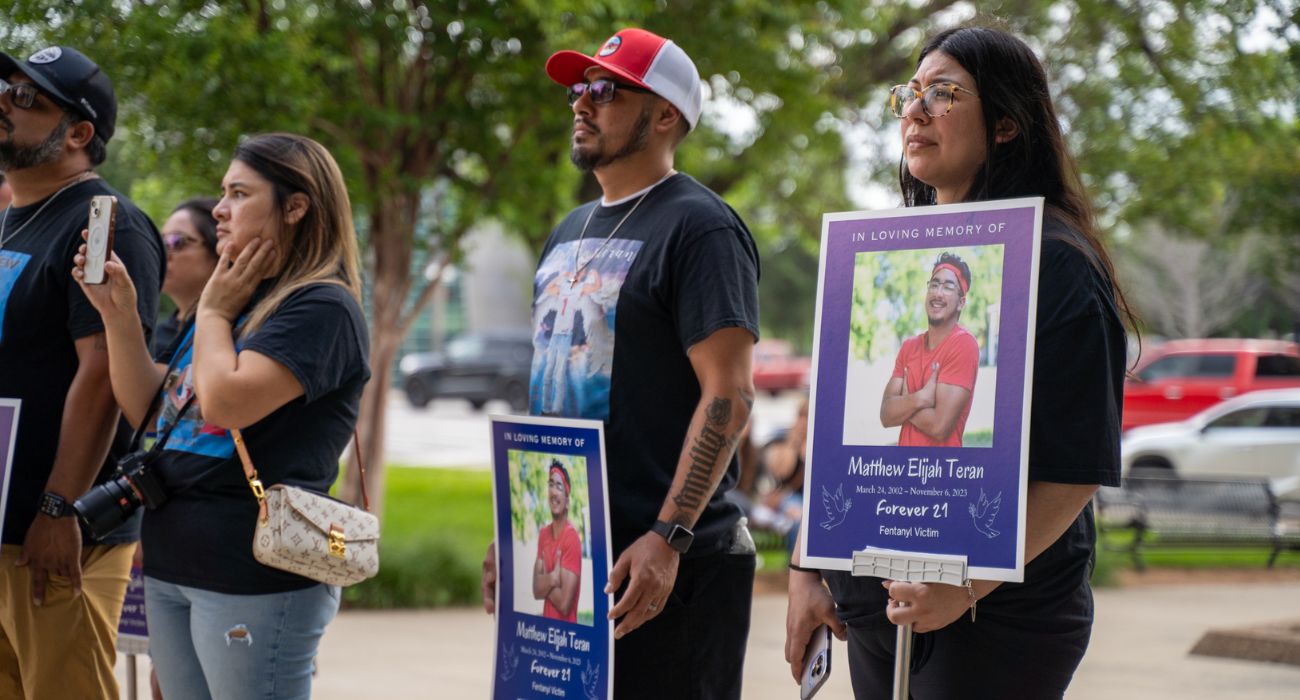
“He never had the pride there or comfort to assume it was okay to mention to somebody [about his addiction]. He was too ashamed,” Conover said. “We have to stop making people who try drugs and who are addicted to them feel like that. You don’t have anywhere to turn to. I never thought I would lose my little brother, and looking back in videos and conversations, I truly saw my brother reaching out but could not say it.”
Doses of Narcan, a medication that can help reverse the effects of opioid overdose, was provided to the people attending the event. Texas Senate Bill 867 allows Narcan to be given out to colleges and universities in the state.


